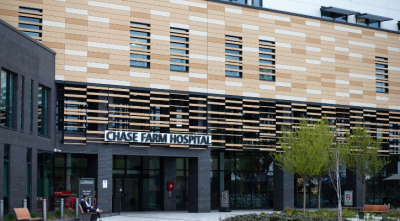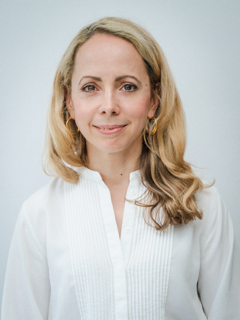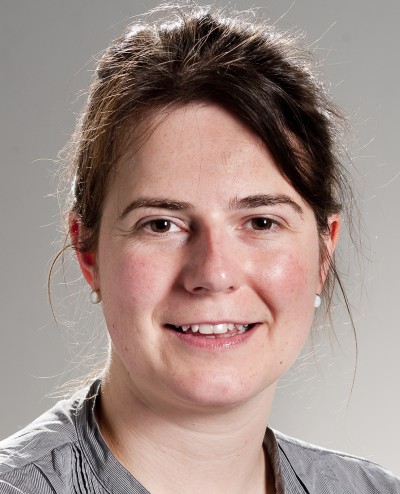
Diabetes is a lifelong condition that causes a person's blood glucose levels to become too high.
Type 1 diabetes
In type 1 diabetes, certain cells in the pancreas are destroyed by the immune system and eventually stop producing insulin. Insulin is a hormone that regulates blood glucose levels and is necessary for life. Without insulin, glucose levels can rise in the blood. If the amount of glucose in the blood is too high over a long period of time, it can seriously damage the body's organs. Whilst it may take many months for the cells to stop making any insulin, the symptoms of type 1 diabetes are rapid, developing over a few weeks. Type 1 diabetes cannot be prevented or cured. If you have type 1 diabetes, you will need to take insulin, via injections or an insulin pump, for life. Whilst eating a healthy diet and taking regular exercise will help, taking insulin is still necessary. Type 1 diabetes usually develops before the age of 40 however it can be diagnosed at any age.
Type 2 diabetes
Type 2 diabetes occurs when the body doesn't produce enough insulin to function properly or the body’s cells don't react to insulin. This is known as insulin resistance. Type 2 diabetes usually affects people over the age of 40, although increasingly younger people are also being affected. It is more common in people of South Asian, African-Caribbean or Middle Eastern descent.
Accessing the service
Our service helps children and young people (up to 19 years) with type 1 diabetes, type 2 diabetes, monogenic diabetes such as maturity onset diabetes in the young (MODY) and other types of diabetes e.g. steroid related diabetes.
If you're referred to our service, you’ll meet our multidisciplinary team of doctors, specialist nurses, dietitians and clinical psychologists. Most newly diagnosed young people with diabetes need to stay in hospital for a short while. During an inpatient stay, which will be at either Barnet Hospital or the Royal Free Hospital, we provide education and training to help empower you as a family to manage the condition, with specific information about carbohydrate counting, psychological support and insulin dose adjustment.
The paediatric diabetes specialist nurses will also work closely with your school, college or nursery to ensure staff at these settings are confident and competent in supporting children with diabetes, and offer training at diagnosis and then twice yearly refresher training to schools for this.
We offer continuous glucose monitoring and hybrid closed loop insulin pump technology in our service to all our eligible patients. We recommend that our families routinely upload their devices and can support families to learn how to interpret this information and adjust insulin dosages, in between their clinic appointments.
Regular support is offered following discharge from hospital, you will attend 4 MDT outpatient clinics a year, held at Barnet Hospital, Chase Farm Hospital and the Royal Free Hospital. We can also offer video and telephone appointments if necessary. Additional nurse-led, dietetic and psychology appointments can be offered as needed.
All three of our hospitals offer young adult clinics for people aged 16-19. The adult diabetologists, dietitians and diabetes specialist nurses join the paediatric team at these clinics, to promote a smooth move from children’s services to adult services.
We are passionate about supporting children, young people and their families to live full, healthy, happy lives with diabetes and we look forward to working with you.
Barnet Hospital
Email: RF-TR.
Tel: 020 8216 5431 (Monday to Friday, 9am to 5pm — voicemail facilities available)
For advice outside of these hours, call 020 8216 5195
For queries about your child’s appointment, call 020 8216 5201
Chase Farm Hospital
Email: RF-TR.
Tel: 020 8216 5431 (Monday to Friday, 9am to 5pm — voicemail facilities available)
For advice outside of these hours, call 020 8216 5195
For queries about your child’s appointment, call 020 8375 1901.
Dieticians at Barnet Hospital and Chase Farm Hospital
Email: RF.
Tel: 020 8216 4351 (voicemail facilities available)
Royal Free Hospital
Email: rf.
Tel: 020 7830 2571 (Monday to Friday, 9am to 5pm)
For advice outside of these hours, including weekends and bank holidays, call 020 7794 0500 and ask for the paediatric on-call consultant, on bleep 1000.
For queries about your child’s appointment, call 020 7830 2144.
Dieticians
Tel: 020 7794 0500 ext 35716
We offer children and young people four outpatient clinic appointments per year, where they have access to all the professionals in our team.
When you arrive in the clinic, the clinic nurse will:
- Take measurements of your height, weight and blood pressure.
- Take a finger prick blood test to look at your blood sugars over the past three months. This is known as the HbA1c measurement, and the result will be available straight away to help with your consultation.
The diabetes team will also review the information from your home blood glucose monitoring. Please ensure you’ve also looked at your current upload. Blood glucose results can be uploaded to Glooko before your clinic arrival.
Once a year, screening tests are undertaken to check for conditions associated with diabetes or complications arising from the diabetes. Depending on the age of the patient, screening tests may include blood and urine samples and examination of the feet.
Nutrition is the cornerstone of diabetes management and is important for normal growth and development.
If you have any questions about nutrition and diabetes, or need advice, our dietitian is here to help support you with:
- carbohydrate counting
- healthy eating
- glycaemic index
- sports and exercise
- free-from diets (eg gluten-free diet for coeliac disease, food allergies)
- bolus options with insulin pump therapy
You may also find the following websites useful for carbohydrate counting and managing sports and exercise:
- Carbs and cals (book and smartphone app)
- Runsweet (exercise information)
For referring doctors
Any child suspected of having diabetes should be referred to our service by telephone on the same day.
Fasting blood glucose tests or oral glucose tolerance tests are not required, but a random blood glucose can be checked on a finger prick test and a urine dip for glucose if a sample is achievable.
Referrals should be directed to the on-call paediatric registrar at Barnet Hospital or to the attending paediatrician at the Royal Free Hospital (see the contact details above). They’ll arrange for the child to be seen on the same day.
Ward admission enables the family to meet the different members of the multidisciplinary team and to have structured education about diabetes.
 Translate
Translate





